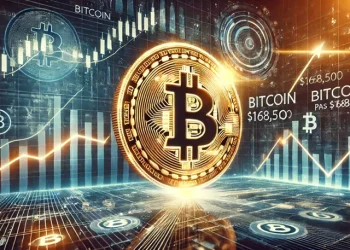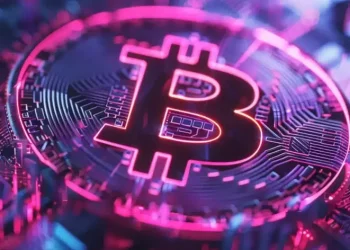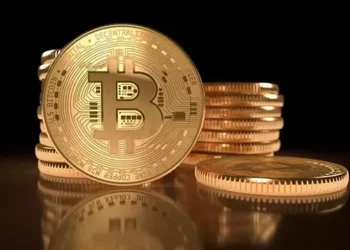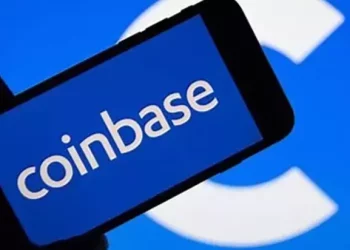Binance is one of the world’s largest and most popular cryptocurrency exchanges, offering a wide range of digital assets and trading services. One of the key decisions traders and investors must make when using Binance is choosing the right network for their transactions. This decision can impact transaction speed, fees, and overall trading experience. This article will explore the different networks available on Binance, their features, and how to choose the best one for your needs.
Understanding Binance Networks
When trading or transferring cryptocurrencies on Binance, you may encounter several network options. Each network has its own characteristics, advantages, and drawbacks. Here is an overview of the most commonly used networks on Binance:
Binance Smart Chain (BSC)
Binance Smart Chain (BSC) is a blockchain network developed by Binance that operates in parallel with Binance Chain. It is designed to offer fast and low-cost transactions, making it a popular choice for DeFi (Decentralized Finance) projects and token transfers. BSC is compatible with the Ethereum Virtual Machine (EVM), allowing developers to deploy Ethereum-based smart contracts and dApps (decentralized applications) on the BSC network.
Key Features:
Low Transaction Fees: BSC offers significantly lower transaction fees compared to Ethereum, making it cost-effective for frequent transactions and DeFi activities.
Fast Transaction Speed: BSC is known for its quick transaction confirmation times, enhancing the overall user experience.
EVM Compatibility: BSC supports Ethereum-based smart contracts, enabling easy migration of dApps from Ethereum to BSC.
Use Cases:
DeFi Applications: Many DeFi projects and protocols operate on BSC due to its low fees and fast processing times.
Token Transfers: BSC is commonly used for transferring BEP-20 tokens, Binance’s native token standard.
Binance Chain (BC)
Binance Chain is the original blockchain developed by Binance, primarily used for fast and efficient trading of Binance Coin (BNB) and other tokens issued on the Binance Chain. Binance Chain focuses on high-speed trading and low latency, making it suitable for users who need rapid transaction processing.
Key Features:
High-Speed Trading: Binance Chain is optimized for fast and seamless trading experiences.
Low Fees: Transaction fees on Binance Chain are relatively low, enhancing cost efficiency.
Native Token Standard: Binance Chain uses the BEP-2 token standard for creating and trading tokens.
Use Cases:
Trading BNB: Binance Chain is the primary network for trading Binance Coin (BNB).
Token Creation: Users can create and manage BEP-2 tokens on Binance Chain.
Ethereum Network
The Ethereum network is one of the most widely used blockchains for smart contracts and decentralized applications. Binance supports Ethereum (ETH) and ERC-20 tokens, which are tokens built on the Ethereum blockchain. Ethereum is known for its extensive ecosystem and robust developer community.
Key Features:
Smart Contract Capabilities: Ethereum’s smart contract functionality supports a wide range of dApps and DeFi protocols.
Large Ecosystem: Ethereum has a vast network of projects, developers, and users.
ERC-20 Token Standard: Ethereum uses the ERC-20 token standard, which is widely adopted across various platforms.
Use Cases:
DeFi Platforms: Many DeFi projects are built on Ethereum due to its advanced smart contract capabilities.
Token Transfers: Ethereum is commonly used for transferring ERC-20 tokens.
TRON Network
TRON is a blockchain platform designed for high-performance and scalability. It supports smart contracts and decentralized applications, similar to Ethereum. TRON is known for its low transaction fees and high throughput.
Key Features:
High Throughput: TRON is designed for high transaction throughput and scalability.
Low Fees: Transaction costs on TRON are minimal, making it cost-effective for users.
TRC-20 Token Standard: TRON uses the TRC-20 token standard for creating and managing tokens on its network.
Use Cases:
Decentralized Applications: TRON supports a variety of dApps and smart contracts.
Token Transfers: TRON is used for transferring TRC-20 tokens.
Polygon (MATIC) Network
Polygon is a layer-2 scaling solution for Ethereum, designed to improve transaction speed and reduce fees. It provides a framework for building and connecting Ethereum-compatible blockchain networks.
Key Features:
Scalability: Polygon enhances Ethereum’s scalability, allowing for faster and more cost-effective transactions.
Low Fees: Transaction fees on Polygon are significantly lower compared to Ethereum.
EVM Compatibility: Polygon is compatible with Ethereum, allowing for seamless integration with existing Ethereum-based projects.
Use Cases:
Layer-2 Solutions: Polygon is used for scaling Ethereum-based projects and applications.
Token Transfers: Polygon supports the transfer of tokens across its network.
Choosing the Right Network
Selecting the appropriate network for your transactions on Binance depends on several factors. Here are some key considerations to help you choose the right network:
Transaction Fees
Different networks have varying transaction fees. If cost is a major concern, you may prefer networks with lower fees, such as Binance Smart Chain (BSC) or TRON. Higher fees are generally associated with Ethereum, but it offers more extensive features and capabilities.
Transaction Speed
Speed is another crucial factor when choosing a network. Binance Chain and Binance Smart Chain (BSC) are known for their fast transaction processing times. If you need quick confirmations, these networks may be preferable.
Token Compatibility
Ensure that the network you choose supports the tokens you plan to trade or transfer. Binance Smart Chain (BSC) supports BEP-20 tokens, while Ethereum supports ERC-20 tokens. If you are dealing with tokens on a specific network, choose a compatible network for your transactions.
Use Case
Consider the purpose of your transaction or investment. For example, if you are participating in DeFi activities, Binance Smart Chain (BSC) and Ethereum are popular choices due to their support for smart contracts. If you are trading Binance Coin (BNB), Binance Chain is the primary network.
Network Reliability
Assess the reliability and security of the network. Established networks with a strong track record of uptime and security, such as Ethereum and Binance Smart Chain (BSC), offer greater assurance. Newer or less established networks may have less proven reliability.
Integration with Other Platforms
If you use multiple platforms or services, consider how well the network integrates with them. For example, if you use decentralized applications (dApps) on Ethereum, you may prefer using the Ethereum network for seamless interaction.
Practical Tips for Using Binance Networks
Check Network Fees Before Transactions
Always check the network fees associated with your transactions before proceeding. Binance provides fee information for each network, allowing you to make informed decisions based on your budget.
Verify Token Compatibility
Ensure that the token you are transferring or trading is compatible with the selected network. Binance provides information about supported tokens and their corresponding networks.
Use Binance’s Tools and Resources
Binance offers tools and resources to help you navigate network choices. Utilize Binance’s help center, guides, and customer support for assistance with network-related queries.
Stay Updated on Network Developments
Stay informed about updates and changes to the networks you use. Network upgrades, changes in fee structures, or new features can impact your transactions and trading experience.
Consider Future Needs
Think about your future needs and potential changes in your trading strategy. Choosing a network that aligns with your long-term goals and preferences will help ensure a smooth and efficient trading experience.
See also: How Much Does Coinbase App Cost?
Conclusion
Choosing the right network on Binance is a crucial decision that impacts transaction fees, speed, and overall trading experience. Binance Smart Chain (BSC), Binance Chain, Ethereum, TRON, and Polygon each offer unique features and advantages. By understanding the characteristics of each network and considering factors such as transaction fees, speed, and token compatibility, you can make an informed decision that aligns with your needs and preferences.
Whether you are trading, transferring tokens, or participating in decentralized applications, selecting the appropriate network will enhance your experience on Binance. Stay informed about network developments, utilize available resources, and make choices that support your trading goals and objectives.
Related topics:

















